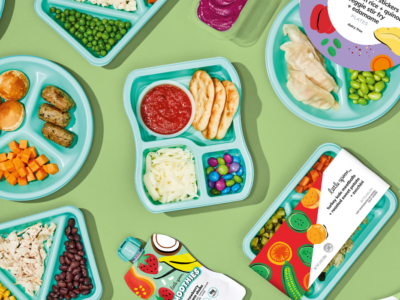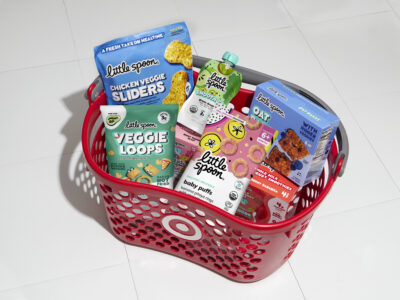Picky eating—it’s basically a parenting rite of passage. If your kid is giving carrots the side-eye or treating chicken nuggets like the fifth food group, you’re not alone. As Ali Bandier, registered dietitian and child nutrition wizard, says: picky eating isn’t a sign you’re failing as a parent. It’s just a totally normal (and yes, completely maddening) developmental stage. Here’s Ali’s advice for navigating picky eating without losing your cool.
First Things First: Picky Eating Is Normal
Good news: if your kiddo is throwing shade at anything green, they’re not broken—they’re just being human. “It’s developmentally normal for a baby who ate everything to become a toddler with opinions and preferences,” says Ali. Translation: your tiny food critic is just discovering their voice (and exercising it loudly).
But let’s not skip over the exceptions. If your little one suddenly trades their love of all foods for a diet of beige-only snacks, it might be worth a closer look. “When a child goes from eating a variety of foods to eating only one or two, it may signal an underlying issue,” Ali explains. Things like sensory sensitivities, motor challenges, or other medical hurdles could be in the mix. If that’s the case, don’t hesitate to call in the experts.
Spoiler Alert: Pressure Doesn’t Work
Raise your hand if you’ve ever said, “Just one bite,” or “No dessert until you finish your veggies.” Now raise your other hand if it backfired spectacularly. Yup, we’ve all been there. “One of the biggest causes of picky eating is pressure to eat,” Ali says. “It doesn’t lead to long-term success.”
Instead of playing the food enforcer, turn mealtime into an adventure. Let your kid pick out something new at the grocery store, read books about food together, or even turn broccoli into a paintbrush (you’ll get points for creativity, if nothing else). “These activities reduce fear and help kids engage with new foods in a positive way,” Ali explains.
And remember, progress is progress—no matter how small. “Celebrate the small wins,” Ali says. “If a child who wouldn’t touch broccoli is now holding it, that’s a huge win!”
Think Rainbow
Ali’s go-to advice? Focus on variety. “The more colors an types of foods your child eats, the more nutrients they’ll get,” she says. If carrots are on the no-fly list, try orange peppers. If broccoli gets the boot, how about zucchini?
For the pickiest eaters, a multivitamin can help fill in nutritional gaps. Think of it as your safety net for those days when mealtime feels more like a negotiation than nourishment.
When to Call in the Pros
If picky eating goes from frustrating to concerning—think nutrient deficiencies or weight loss—it’s time to get help. “When selectivity leads to a lack of vitamins and nutrients, or if weight becomes an issue, it’s time to seek help,” Ali advises. Pediatricians, dietitians, and feeding therapists are like the Avengers of picky eating—they’re here to save the day.
Don’t Forget to Be Kind to Yourself
Parenting is messy. Food fights (literal and metaphorical) are just part of the journey. Ali’s parting wisdom? Don’t sweat it too much. “If strategies help you feel more confident, use them. But if they make you spiral, it’s okay to step back,” she says.
So take a breath, pat yourself on the back for every small win, and remember: this too shall pass. Broccoli protests and carrot rebellions are just pit stops along the wild, wonderful road of raising a tiny human.
Got this, parents. And if all else fails, there’s always mac and cheese.



